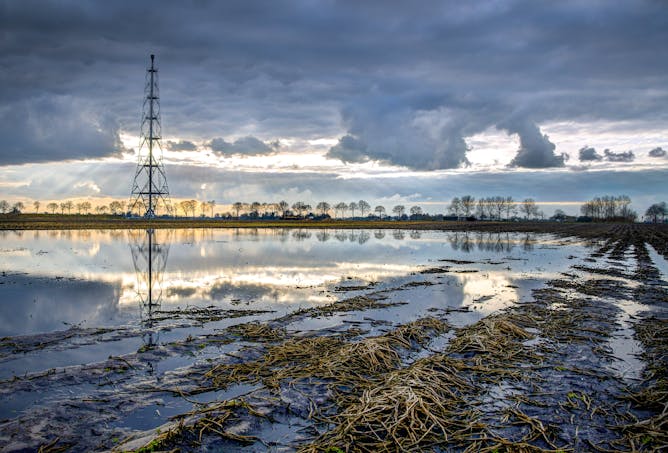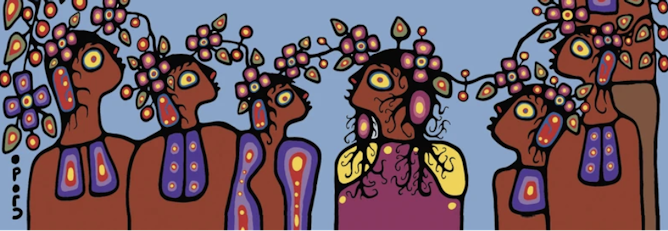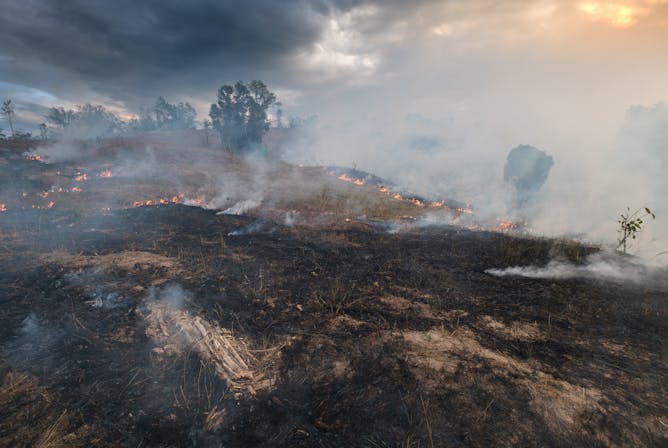|
Global temperatures are projected to reach about 4C above pre-industrial levels by the end of the century unless countries take meaningful steps to rein in their carbon outputs. Many economists back the idea that raising the cost of burning fossil fuels like coal, oil and natural gas is the best way to curb greenhouse gas emissions and limit climate change. Dozens of governments have implemented carbon pricing schemes, yet most countries are not on track to meet their Paris climate targets.
Today in The Conversation Canada, Cameron Roberts from Carleton University looks to history to see how governments have hastened large-scale technological change in the past, and suggests that carbon pricing might be overrated. Take the Netherlands, for example. Sixty years ago, the Dutch discovered what would turn out to be the largest natural gas field in Europe. The trouble was, the country was largely powered by coal. The government embraced the bonanza with sweeping changes: In just five years it built a nationwide network of gas
pipelines, retrained coal-workers and encouraged consumers to switch to gas power.Also today:
Regards,
|

The Groningen gas field in the Netherlands was discovered in 1959, and is the largest natural gas field in Europe.
(Skitterphoto/Wikimedia)
Cameron Roberts, Carleton University
The case for carbon pricing is not as ironclad as the case for climate action.
|

It is critical to learn more about SARS-CoV-2, including its source and why transmission appears to be more efficient than with previous coronaviruses.
(Shutterstock)
Marc-Antoine De La Vega, Université Laval
Scientists are pursuing several different avenues to develop a vaccine for the novel coronavirus, but the process could take years.
|

A detail of the book cover for ‘Seven Fallen Feathers’ by Tanya Talaga.
(House of Anansi Press/'Seven Fallen Feathers,' book cover art by Christian Morrisseau)
Michelle Coupal, University of Regina
To understand the colonial past is to open the door to understanding the colonial present and future. This understanding is a crucial part of the pathway to real change.
|

The NFL has been thrust into conversations around criminal justice since Colin Kaepernick and others chose to kneel in protest against police violence, but also in the case of former player Aaron Hernandez.
AP Photo/Ted S. Warren
Matt Ventresca, University of Calgary; Kathryn Henne, Australian National University
From Super Bowl ads to Netflix documentaries, the complicated issues of criminal justice are portrayed in simplistic and highly political ways.
|

Territoire dévasté par les feux de brousse de 2019-2020 en Australie.
Shutterstock
Diane Alalouf-Hall, Université du Québec à Montréal (UQAM); Caroline Bergeron, Université de Montréal; David Grant-Poitras, Université du Québec à Montréal (UQAM); Jean-Marc Fontan, Université du Québec à Montréal (UQAM)
La philanthropie sous forme de don en argent n'est pas une solution aux catastrophes naturelles causées les changements climatiques. Il faut une nouvelle philanthropie du changement social.
|
Arts
|
-
Rhyd Lewis, Cardiff University
From Bollywood to Hollywood, which actors are best the connected?
|
|
Environment + Energy
|
-
Mike Jeffries, Northumbria University, Newcastle
Coming to a river catchment near you: a rodent crack team ready to reduce flooding and boost biodiversity.
|
|
Health + Medicine
|
-
Laurie Archbald-Pannone, University of Virginia
As the boomers age, many will have medication issues. That can be compounded by the number of drugs they take, both prescription and over-the-counter.
|
|